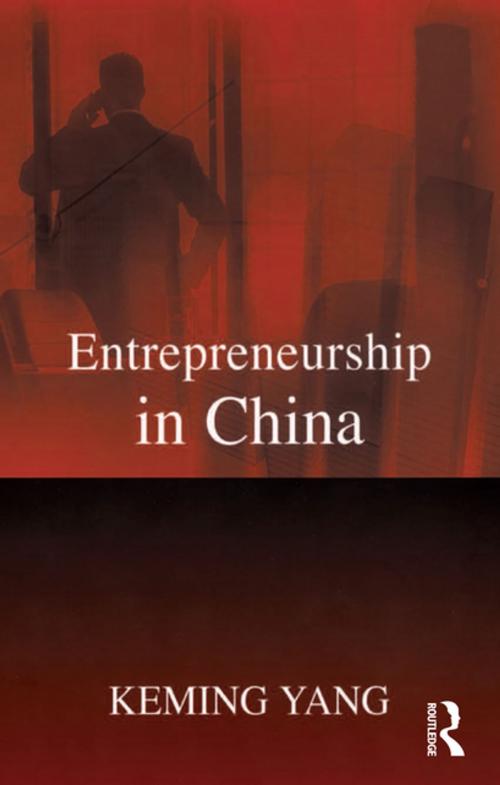| Author: | Keming Yang | ISBN: | 9781317142560 |
| Publisher: | Taylor and Francis | Publication: | April 29, 2016 |
| Imprint: | Routledge | Language: | English |
| Author: | Keming Yang |
| ISBN: | 9781317142560 |
| Publisher: | Taylor and Francis |
| Publication: | April 29, 2016 |
| Imprint: | Routledge |
| Language: | English |
The emergence of China as a major world economy is of great importance to the global political economy and to international business. There has been much research on the macro level of institutional reform but little detailed work on the grassroots level of entrepreneurship in China. This innovative book addresses this gap by investigating how an economic system dominated by central plans, communist ideologies and suppressing bureaucracies could generate such energy from the bottom of society, fuelling the country's economic growth. Keming Yang’s theory of entrepreneurship is based on two interrelated concepts: double entrepreneurship and institutional holes. He argues that the two concepts bridge a gap between the neo-classical institutionalism of economic development and entrepreneurship studies that emphasize individual choice. The rigorous theoretical framework is supported by substantial empirical research, offering statistical analyses of survey data as well as detailed case studies. This timely book will appeal to an interdisciplinary readership in sociology, economics, business studies and Chinese and Asian Studies.
The emergence of China as a major world economy is of great importance to the global political economy and to international business. There has been much research on the macro level of institutional reform but little detailed work on the grassroots level of entrepreneurship in China. This innovative book addresses this gap by investigating how an economic system dominated by central plans, communist ideologies and suppressing bureaucracies could generate such energy from the bottom of society, fuelling the country's economic growth. Keming Yang’s theory of entrepreneurship is based on two interrelated concepts: double entrepreneurship and institutional holes. He argues that the two concepts bridge a gap between the neo-classical institutionalism of economic development and entrepreneurship studies that emphasize individual choice. The rigorous theoretical framework is supported by substantial empirical research, offering statistical analyses of survey data as well as detailed case studies. This timely book will appeal to an interdisciplinary readership in sociology, economics, business studies and Chinese and Asian Studies.















